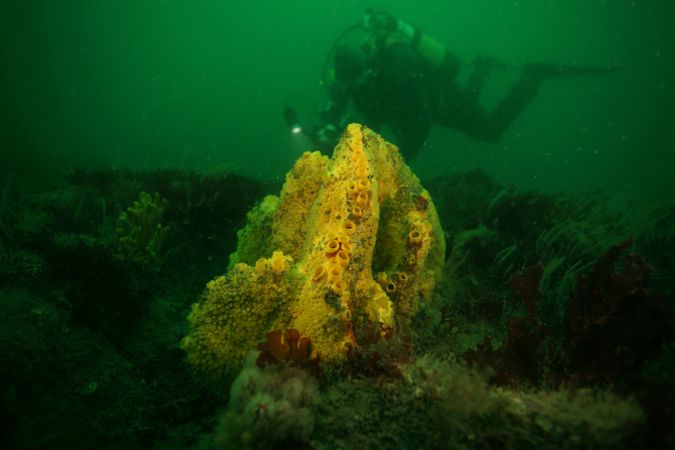Sponge survey to understand health of marine habitat

Natural Resources Wales (NRW) has conducted an in-depth survey to learn more about the health of one of Wales’ most unique wildlife habitats.
The Skomer marine conservation zone (MCZ) off the coast of Pembrokeshire, is home to a wealth of marine wildlife and is an area where NRW carries out large scale research and monitoring programmes.
These aim to increase our knowledge and understanding of the marine species and habitats found there.
Many are conducted each year and involve taking photographs of the same areas or individual animals so that changes can be identified.
However, this year’s is an in-depth survey that requires staff to take samples of sponges to be identified and catalogued.
This kind of survey happens only once every four years and the health and diversity of the sponges can help build a picture of how well the whole habitat is doing.
There are over 130 different types of sea sponge at the Skomer MCZ and often new species are discovered during surveys just like this. At least twelve previously undescribed species have been found there since 2003.
Jennifer Jones, marine environmental assessment officer for NRW, said:
“Skomer is a really unique area, not just in Wales but in the world. It’s bursting with biodiversity and the work we do to maintain and protect the area is so important.
“Sea sponges can tell us a lot about what else is happening in the conservation zone, but the general rule is that if the sponges are thriving then so are most of the other plants and animals that live there.
“These surveys are important because they give us a long term idea of the zone’s overall health which makes it easier to spot if something goes wrong within the habitat. Doing this makes managing and maintaining this amazing resource much easier.”
The sponge samples will now be examined and identified, and the species names added into a database of sponge species known to live within Skomer MCZ.
